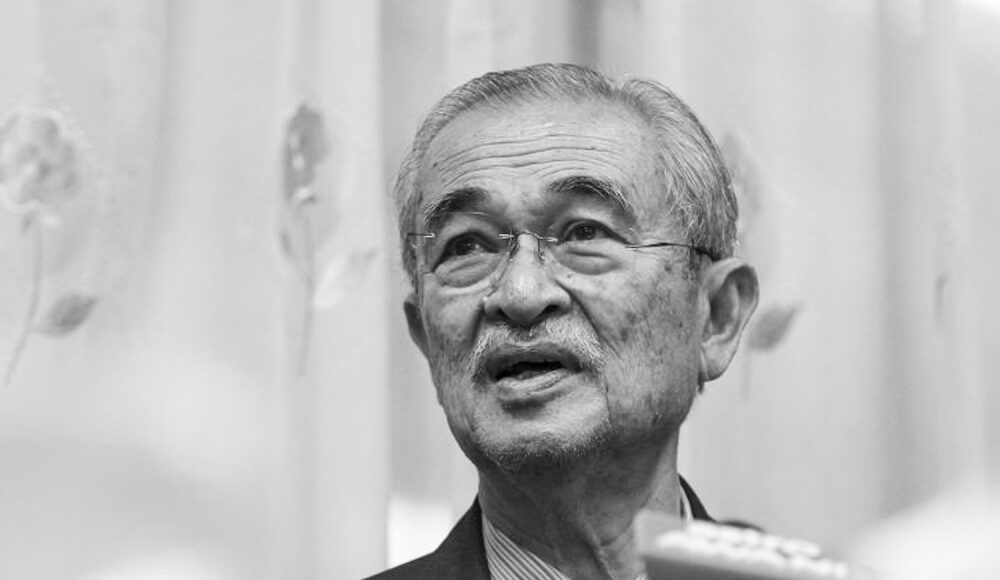APRIL 16 — History, when it looks back, always pauses at the sincere leaders. The ones who did not seize power with clenched fists or thunderous cries, but listened.
Pak Lah, Tun Abdullah Ahmad Badawi, was that rare kind of leader — not loud, but luminous. A statesman who moved a nation by the statesman who guided a nation’s conscience with measured grace.
He did not shout yet we heard him. He did not demand reverence, yet we found ourselves pausing, listening, watching — not for drama, but for decency.
When Tun Abdullah passed on April 14 at the age of 85, the nation bowed its head — not in spectacle, but in solemn gratitude and reflection.
Pak Lah’s leadership was not shaped by slogans or taglines. It was measured and yet not misunderstood. From October 2003 to April 2009, Pak Lah governed not with an iron fist, but with faith, principle, and a profound belief and trust.
His governance was not a political scenario that was addicted to theatrics. Under his leadership and interfaith understanding, we breathed. The Nation breathed.
Pak Lah did not believe in vengeance, only in strategic responsibility and his conviction when he governed.
Tun Abdullah Ahmad Badawi at a conference on Malaysian Islamic Economic And Finance in ILIM, Bangi, July 29, 2015. — Picture by Yusof Mat Isa
The Anti-Corruption Agency, long seen as a tool, became — under his watch — the Malaysian Anti-Corruption Commission, an entity with teeth, autonomy, and an institutional spine. It became a quiet war against the unaccountable abuse of power without targeted vengeance.
Equally significant was his push for the Independent Police Complaints and Misconduct Commission (IPCMC), a measure aimed at holding enforcement bodies to higher standards by proposing mechanisms to hold police accountable.
Pak Lah was humble and kind. People remember that. He made time. He listened. He let others speak and then responded — not with disdain, but with deliberation.
Pak Lah visited the Immigration Department – a nondescript building in Damansara Town Centre, bloated with bureaucracy, people swarmed. They cried their unfiltered grievances in long queues and slow processes.
Instead of retreating behind protocol, he listened. And then, he changed things. Passports that once took months now arrived within hours.
Abdullah’s five economic corridors, launched during his administration, aimed at spurring regional development while respecting the agricultural backbone of the country. The Iskandar Malaysia project in Johor, launched under his leadership, envisioned high-value job creation through planned urbanisation and private sector collaboration.
In all this, his style was unassuming, collaborative, and devoid of an iota of an authoritarian streak nor with bombast or arrogance
Pak Lah gave children free textbooks. A simple thing. But nations are built, or broken, in such simplicity. His perfection was never his project. Instead, he sought to be good. And goodness, in politics, is often the most far-reaching act of all.
He cut through the knotted red tape of administration with a reformist’s calm and a believer’s clarity.
“Both Pak Lah and his beloved late wife, Toh Puan Endon Mahmood, were the epitome of grace and hospitality. Their home was always warm and welcoming — not just to dignitaries but to everyone who crossed their threshold. They were solicitous hosts who remembered names, asked after families, and treated visitors with genuine affection,” recalls one diplomat.
And Endon matched him in grace. Their home was a space of warmth, not grandeur. She championed the Nyonya Kebaya, not as nostalgia but as heritage. A fabric woven with memory and hope. A reminder that culture is a tapestry that does not belong to one but to all.
Pak Lah did not use his faith as a weapon. He never used it to divide. He prayed quietly and lived modestly. He never denied the Chinese grandmother in his lineage. In a country often tempted by the politics of purity, he was defiantly mixed — by ancestry and by aspiration.
He reminded us that unity is not an ideal to be invoked but a muscle to be exercised daily. He stood by Rukun Negara.
Tun Abdullah’s deep moral grounding was visible in the simplicity with which he carried himself — soft-spoken, courteous, and consistently respectful to friend and critic alike. It was this consistency of character that gave Malaysia a leader it could trust during uncertain times.
He gave the press space. Not absolute freedom — perhaps he could have done more — but it was undeniably an opening. Online media began to flourish. Debate blossomed. The edges of fear softened.
In the end, his legacy will not be found in soaring towers or grand pronouncements. It will be found in the memory of a man who chose humility in a world that rewards hubris. A man who believed in goodness as governance. A man who served — not with drama — but with quiet resolve.
And when the tide turned against him — as it does for all who govern — he did not cling to power. He handed over the keys. With grace. With dignity. With a quiet, unspoken statement that spoke volumes – this was never about me. It is about the people I serve. And that’s what Pak Lah did. Like a father.
** This is the personal opinion of the writers or publication and does not necessarily represent the views of Malay Mail.





